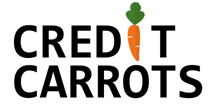GIC’s and bonds are two of the safest investments that you can make with your money. People sometimes get the two confused, and ask “Is a GIC a bond?”. GIC’s and bonds are different investments, and we will go over both to help you decide what is best for you.
“GIC” stands for “Guaranteed Investment Certificate”. A GIC works very much like a savings account. You deposit money into a GIC, and in return you earn interest on that money. However with a GIC, you are generally not allowed to withdraw that money for a specified period of time. GIC’s protect your principal investment, and are also insured. Typically, GIC’s will offer higher interest rates than savings accounts which is why people like them if they don’t need to use the money anytime soon.
Bonds are issued by governments and corporations when they want to raise money. In this article, we’ll only consider federal government bonds as they’re the safest type of bond investment. By buying a federal government bond, you’re essentially lending money to the government. In return, the government agrees to pay back the loan by a specific date, and to pay you interest along the way. If you hold a bond to the maturity date, then you will 100% get your principal back. However, if you want to sell your bond early then the price of the bond may be higher or lower depending on the market. The maturity date of bonds can be very long (eg. 30 years) so most people don’t hold bonds until maturity.
GIC’s VS Bonds
Now that we know what GIC’s and Bonds are, let’s compare them in a few key categories.
Rate of return. Bonds have the potential for higher returns. This is because the price of your bonds can go up or down based on market conditions. Imagine if you bought a bond that pays out 5% interest a few years ago, but the current bonds only pay 2% interest. Investors would be willing to pay a premium for your bond with 5% interest. The opposite is also true. If you hold a bond with a 2% interest rate, and the current bonds are selling with a 5% interest rate then investors would pay a discount to buy your lower yielding bond.
Risk. GIC’s are less risky than bonds. Even though both investments guarantee your principal, you would have to hold your bonds until maturity (which could be 30 years) for the government to give your principal back. If you want your money back before the bond maturity date, then you’ll have to sell your bonds at the market price. GIC’s also have a maturity date, but they tend to be much shorter (from months to a few years). Furthermore, if you want to withdraw your GIC funds early then you’ll often just lose out on the additional interest.
Flexibility. You’ll have more flexibility with a bond than a GIC. This is because it can be traded at any time. However, the value of the bonds when you sell them is subject to the market conditions.
Should You Buy GIC’s or Bonds?
We like buying bonds more than GIC’s.
It’s so easy these days to buy a solid, low fee bond mutual fund or ETF. You can trade these bond funds at any time, and use a reinvestment plan so that your monthly payouts goes towards buying more of the bond fund to take advantage of compounding. There are also bonds which are inflation-linked so that you can rest assured that your principal isn’t worth less due to inflation. Bonds are also a pillar of a solid investment portfolio.
If you are certain that you don’t need the money for a set period of time, and you absolutely cannot tolerate any loss in principal then you should consider GIC’s. When buying GIC’s, we recommend shopping around at a few different banks to get the best promotional rate.
We are not financial advisors, and no content on this site should not be taken as financial advice. No guarantee can be made if you invest based on the information provided on this blog. We make no warranty of any kind regarding the blog and/or any content, data, materials, information, products or services provided on the blog.











Leave a Comment